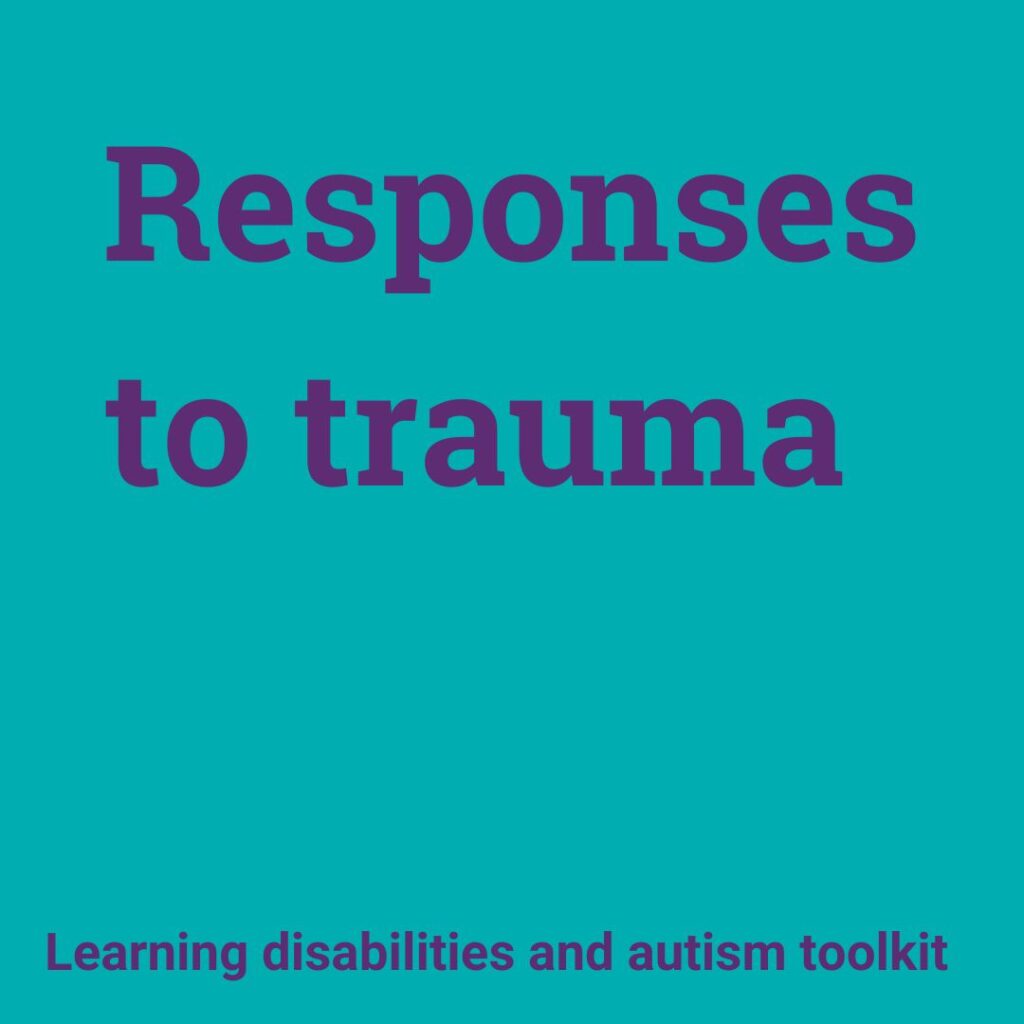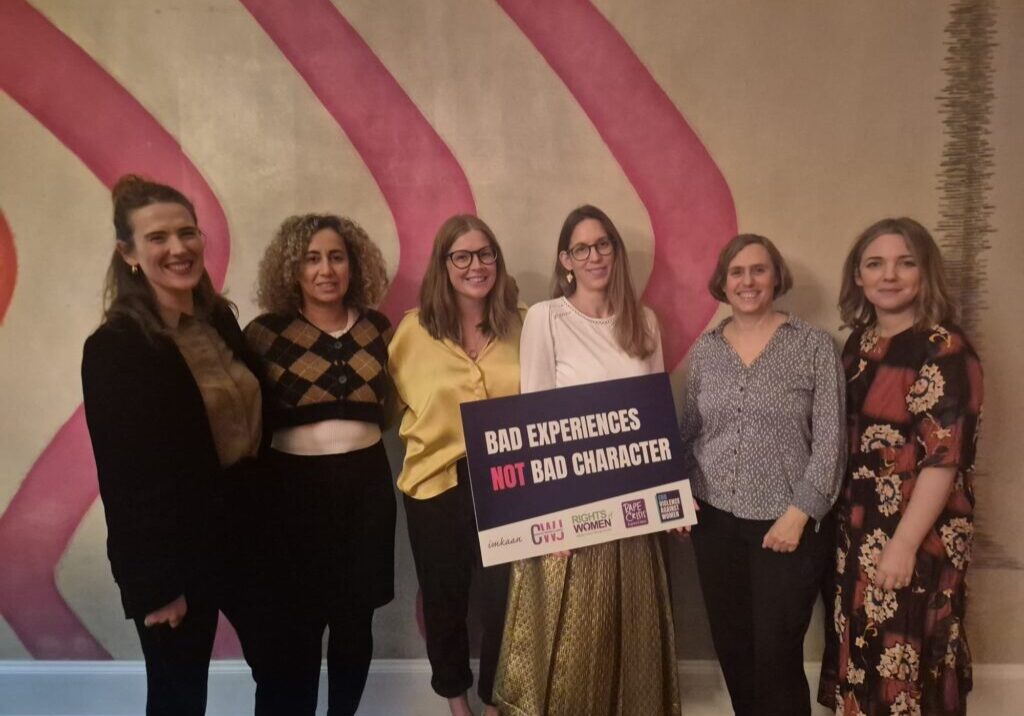
Responses to trauma
An experience of trauma can have a profound impact on the brain producing a number of different responses. Everyone's experience is unique, but there are some common responses shared by many victim-survivors.
What is a flashback?
Many victim-survivors experience vivid images of the traumatic event, making them feel as though it’s happening all over again. These images are known as flashbacks and are active memories of a past event. Flashbacks can arrive at any time, be out of a person’s control, and once they arrive, can be difficult to get rid of. They can feel very scary and overwhelming.
How to provide support
- Support to understand that they are having a flashback and that this is a normal response to what they have experienced.
- Support to practice grounding techniques and or self-soothing techniques.
- Support to think about creating a safe space. Encourage them to think about where feel safe, where they feel relaxed and calm.
Watch our video on using the five senses as a grounding technique
If you don’t have access to one or any of the senses, or if one of those senses feels triggering, feel free to skip that one or swap things around to find what works for you.
What is a panic attack?
Panic attacks can be triggered by extreme stress. They are the bodily reactions that can cause us to have trembling or shaky hands, nausea, breathing difficulties, sweating and increased worries or fears.
How to provide support
- Support the person to understand that flashbacks are a normal response. Support the person to remember that the worst has passed and that they are safe now.
- If you are supporting a person that regularly experiences panic attacks, it might be useful to support them to work out if there is a pattern to what prompts the panic attack. This could be a specific place, person, or object. You could support them to keep a diary of when and where flashbacks happen.
- Support to practise grounding techniques or distraction techniques: doing this supports the person to think about the here and now. Listing can be an effective technique, such as listing types of dogs, TV shows, counting to 10, saying the alphabet.
- Breathing – when we are frightened, we can forget to breathe. Encourage the person to take long deep breaths, in through the nose and out through the mouth.
- Panic attacks can happen at night and take the form of nightmares. Think about what the person can do to self-sooth and relax, this might be making a hot drink, listening to music or making a self-care box.
Watch our video on making a calming glitter jar
What is dissociation?
Dissociation is a normal response to experiencing trauma, in which the brain disconnects from the present reality or traumatic experience to survive and/or cope. In full dissociation, the person appears to be away for some time, and they may not remember the experience when they return to the present moment.
How to provide support
- If possible, gain consent to refer the person to an agency or service where they can receive specialist therapeutic help and support via your local specialist sexual violence service. Support to practise grounding techniques or distraction techniques, doing this supports the person to think about the here and now.
- Support the person to make a safety plan, that contains information such as who to call if I’m feeling having a bad day, what will make me feel better, how I can be kind to myself and what to do in an emergency.
What is self-injury?
Self-injury or self-harm can be used as a way of coping with the impact of sexual violence. Self-injury is sometimes used to express emotional distress, to self-punish or to gain control when things feel chaotic and difficult.
It is important to remember that an autistic person or a person with learning disabilities may be finding it difficult to regulate and understand their emotions. They may have difficulty expressing and communicating what they are feeling, and self-injury may be a coping mechanism. Remember to approach self-injury in a non-shameful way and support the person to recognise the trauma that underlies their emotions.
Self-injurious behaviours can include cutting yourself, ingesting items, scratching, hand biting and headbanging.
How to provide support
- If you are supporting a person who self-harms, it is important not to ignore it and approach it by supporting the person through non-shameful conversations.
- Check whether the person needs any immediate medical support relating to injuries.
- If possible, gain consent to refer the person to a service where they can receive specialist therapeutic help and support such as Self Injury Support
- If you feel confident and have received mental health first aid training, you may wish to support them to think about what triggers are leading to self-harm. You can support them in considering other coping strategies they could use that would be less damaging.
- Support the person in making a self-care box that can help the person to self-sooth, calm down, or relax. It could include things like a soft toy to cuddle, fidget toys, stress balls, hand cream, favourite books, lists of people to contact, and positive notes to yourself.
- Support the person in making a safety plan that contains information such as ‘who to call if I’m feeling bad’, ‘what will make me feel better’, ‘how I can be kind to myself?’, and ‘what to do in an emergency’.
- If you are supporting someone who finds verbal communication difficult, it might be useful to document all the self-injury incidents that happen when the client self-harms. If the person is engaged with a specialist service like the local Community Learning Disabilities Team, you can work collaboratively to think about ways to support the client in using other coping strategies.
Remember that while you can support the person to make self-harm less damaging, it is important to find a way to support them to process the trauma that underlies these emotions.













